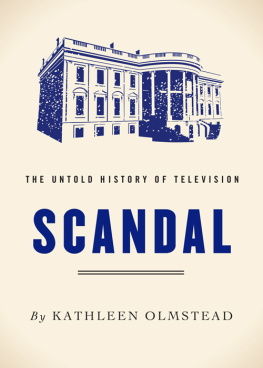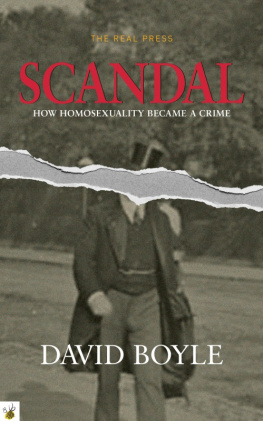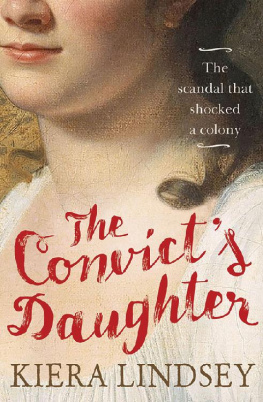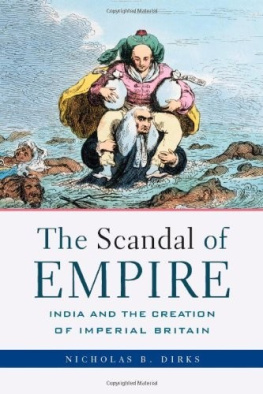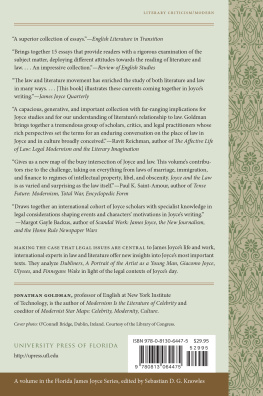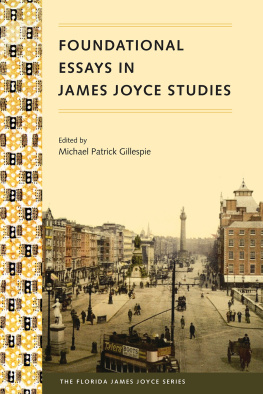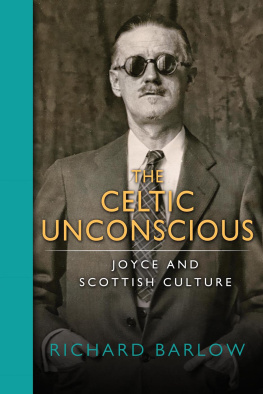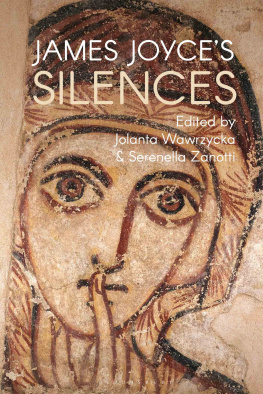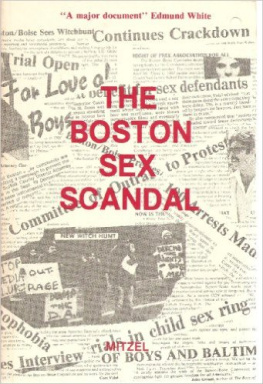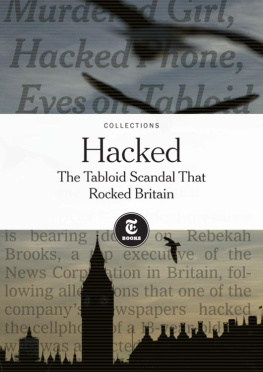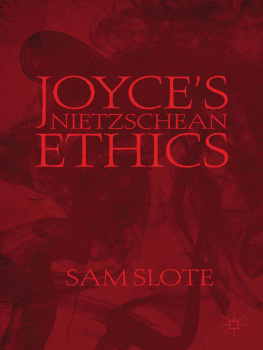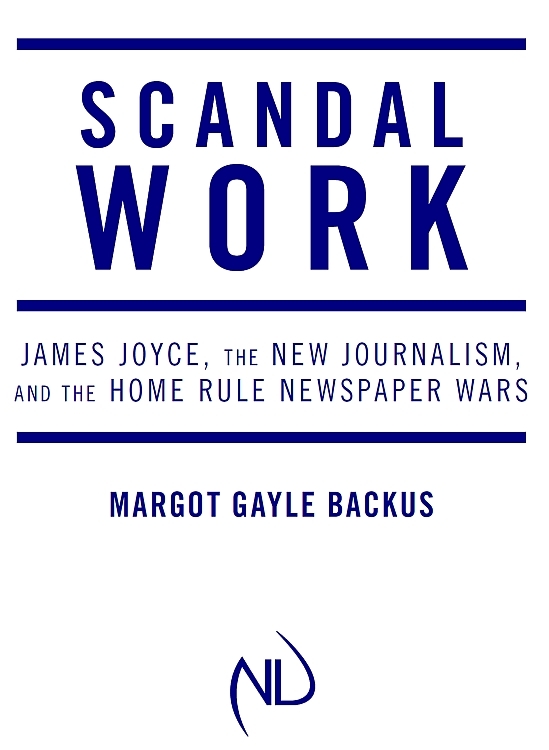
SCANDAL WORK
JAMES JOYCE, THE NEW JOURNALISM, AND THE HOME RULE NEWSPAPER WARS
MARGOT GAYLE BACKUS
University of Notre Dame Press
Notre Dame, Indiana
Copyright 2013 University of Notre Dame
Notre Dame, Indiana 46556
All Rights Reserved
E-ISBN 978-0-268-07591-0
This e-Book was converted from the original source file by a third-party vendor. Readers who notice any formatting, textual, or readability issues are encouraged to contact the publisher at
For my fathers, Russell FitzGerald and Ron Kaake
The arc of the universe is long, but it bends toward justice.
Martin Luther King
CONTENTS
This book was made possible by the generosity of many individuals, groups, and organizations, all of whom I want to first acknowledge and thank collectively, as the ordering of individual acknowledgments implies a hierarchy of gratitude that does not reflect my feelings. Thank you all. The vast web of information and ideas that is the Joyce-verse is the most exhilarating intellectual ocean I ever sought to navigate, and all those acknowledged helped me to keep my head above water and saw me safely to shore.
Of those whose influence on the overall project has been most materially and logistically pervasive, my professional editor, Jeanne Barker-Nunn, has been a star. It has been my good fortune to be coached, helped, pruned, and polished by Jeanne on and off for twenty years, since she copyedited my second published article in 1992, and her work has been invaluable. Sharon Delmendo, Betsy Dougherty, Sarah McKibben, Martha Stallman, and Skip Thompsonfriends, colleagues, and intellectual familylent support that included but also far exceeded reading and responding to chapters. Their engagement with my ideas and the conditions of their production has improved every page of this book and made its writing far less lonely. My editors at the University of Notre Dame Press, Barbara Hanrahan and subsequently Stephen Little, were both, in their distinct ways, magnificent, superlative, indispensable. Kevin Dettmar and Margot Norris, the presss two external readers, supplied responses that deftly balanced praise and encouragement with essential, tactful, insightful, and readily applicable critique. Rebecca DeBoer, Beth Wright of Trio Bookworks, and indeed all those I worked with in the course of the books production have been like Bunyanesque literary inventions created to personify rare and desirable qualities: Competency, Respect, and Kindness.
I seem to have caught Ulysses from my students, rather than vice versa. The deep and fluent thinking in theses by my advisees Sara Leonard and Austin Westervelt-Lutz first got me hooked on the novel. Krista Kuhl, Martha Stallman, Lacy Johnson, Brandon Lamson, Matthew Walker, and Doyle Taverner-Ramos have produced similarly inspiring work. I have been vouchsafed new insights through the discussion and critical writing of literally dozens of University of Houston undergraduates and graduate students, in particular those who read Ulysses with me, and I sincerely thank them for all they have taught me. Martha Stallman in particular has been an extraordinarily valuable interlocutor, encountering and to an astounding degree absorbing Ulysses in one semester, then taking on a variety of roles including protg, entertainer, unpaid and paid research assistant, coauthor, and friend. Her help reshaping these chapters as stories, her deep knowledge of Joyce, and her gift for intellectually apt, elegant, and often hilariously filthy summary resounds throughout the book. Gevais Jefferson, Meina Yates, and Krista Kuhl were all astonishing, joy-inducing students who all became, in varying orders, paid research assistants, conversants, and friends. Every teacher should be so lucky.
A cast of dozens read individual or multiple chapters, often more than once, and supported my work with intellectual guidance and encouragement, friendship, mentorship, reassurance, humor, and kindness. My colleagues at the University of Houston have been particularly generous. Hosam Aboul-Ela and Karen Fang, Maria Gonzalez, David Mazella, and Cedric Tolliver have helpfully responded to many chapter drafts; Hosam and Karen in particular read and responded to these chapters at every stage, starting with the primal ooze from which they evolved. My generous, far-flung Irish studies writing groupHelen Burke, Elizabeth Cullingford, Susan Cannon Harris, Sarah McKibben, Paige Reynolds, and Mary Trotterhas been equally indispensable, reading chapter drafts and all kinds of related pieces of work, cheering me on, and keeping me connected to the field I love. Paige and Sarah have been especially generous, providing astute last-minute readings at moments when it cannot have been convenient to do so. Karen Steele deserves recognition alongside these other long-haul colleagues; she has been a sort of one-woman writing group and emergency interlocutor who read and guided my work as I inelegantly bumbled about in the trackless wastes of newspaper studies. Mary Jean Corbett, Philip Sicker, and Eibhear Walshe also gave invaluable feedback to chapters of this book.
I must also thank those who have welcomed me into the world of Joyce studies with a degree of warmth and openheartednes for which I continue to be grateful. Joe Schork first taught me to interpret figurative language decades before I would need that skill to follow him in the adventure of disentangling Joyces endless figural webs. Joe Kelly introduced me to Joe Valente, Vicki Mahaffey, and Colleen Lamosmy first Joycean role modelswhile he and I were still in graduate school, and all have since become great friends. Joe Valente in particular has been unspeakably influential. Our joint work has shaped my thinking to a degree that cannot be accurately or adequately credited. His support for this project has been lavish; he has read numerous chapter drafts and supplied crucial feedback and guidance on little or no notice. I first read Ulysses for a seminar at the University of West Virginia taught by Declan Kiberd, and thus this book, like so many in Irish studies, owes a debt to this remarkable mentor, teacher, and scholar. Margot Norris has given me, in addition to an insightful readers report, the gift of her warmth and kindness. Katie Conrad, another academic sibling and soul sister, is an influential long-time collaborator and friend who presided over my physical entry into the world of Joyce studies at her lively Bloomsday centenary conference at the University of Kansas in June 2004. Michael Gillespie, Gregory Castle, Ann Fogarty, and Paul St. Amour have been valuable and generous colleagues, while Kevin Dettmar is in a class by himself as a teacher whose heart is matched only by his vast storehouses of knowledge concerning Ulysses and his gifts as a seminar leader. Kevins wise and lucid readers report gave me what I needed to make this a better book. In addition to Karen Steele, Simon Potter has been a vastly generous native informant from the realm of newspaper studies, guiding me around the entry hall and front rooms of that vast archive. Dominique Groeneveld and Sally Connolly have greatly enriched the final stages of book writing. Natalie Houston, too, has been an inspiration and a role model. Our relationship represents a cautionary tale against too little shop talk in ones collegial friendships: if I had understood sooner how our interests intersect, this book might have been even better.
I owe more gratitude than I can ever express to the many scholars, intellectuals, and artists whose exceptional kindness and intellectual generosity enriched my study in Ireland, both synchronically, by creating an intellectual and social place for me while there, and diachronically, by guiding me on the path that got me there. This study was fundamentally shaped and influenced by all the participants in Kevin Dettmars 2008 National Endowment for the Humanities Summer Seminar at Trinity University College-Dublin, the matrix out of which this project grew: Gregory Erickson, Georgia Johnston, Joseph Kelly, Anne MacMaster, Maria McGarrity, John McGuigan, Richard Murphy, Carrie Preston, Agata Szczeszak-Brewer, Erin Templeton, Janine Utell, Beth Wightman, Gregory Winston, and Teresa Winterhalter. In Galway, Nessa Cronin, Louis De Paor, Samantha Williams, and many others made a home for my research at the National University of Ireland-Galways Martha Fox Centre for Irish Studies. Diachronically, Liz Cullingford, Ed Madden, Declan Kiberd, Karen Steele, Laura Lyons, Purnima Bose, Lucy McDiarmid, Jim Doan, Tadgh Foley, Lionel Pilkington, Katherine ODonnell, Katie Conrad, Eibhear Walshe, Susan Harris, Skip Thompson, James M. Smith, and Sarah McKibben have all been indispensable to my development as an Irish studies scholar. For making my precious periods of study in Ireland productive and memorable, I owe particular, sincere thanks to Ed Madden, Katie Conrad, Sarah McKibben, Nessa Cronin, Donna Potts, Ron Savage, Vicki Mahaffey, Lionel Pilkington, Tony Tracy, Rebecca Pelan, Tadgh Foley, Maureen OConnor, David Doyle, John Eastlake, Leo Keohane, Mabh N Fhuarthin, Lillis OLaoire, Lucy McDiarmid, Noreen Giffney, Michael ORourke, James M. Smith, Eibhear Walshe, Paul St. Amour, Jeff Dudgeon, Enda Duffy, Harriette Andreadis, Laura Doan, Felix Larkin, Lori Gallagher, Colleen Lamos, Moira Kelly, Kevin Barry, Jim and Kathy Murphy, and Sean Kennedy, Tina OToole, and Anne Mulhall. Mary Dorcey, Eveline Conlon, Colm Tibn, and Jamie ONeill are the nicest, most generous of contemporary Irish authors. Irish filmmaker Pat Murphy threw me a lifeline when I needed it.
Next page

